Women in the Arabian Peninsula are in a unique position under the auspices of numerous constituents living in the region, who have created dozens of women’s organizations and institutions. Women have been participating in sensitive political decisions, impressively and effectively bearing much of the responsibility, in comparison to the rest of the governorates.
Kurdish women recently joined in political life and, alongside the many men, established organizations and agencies specializing in women’s affairs. The association “Citizens for Syria” has estimated that the number is around 28.
With the growth of female participation in Al-Hasakah, ways to exploit women have emerged, such as compulsory enlistment for dozens of females. Within the military combat arm of the “Democratic Union” party, units “for the protection of women” and “Asayish” forces have appeared. Additionally, some citizens think that the department of “self-management” took advantage of Kurdish women to undertake some illegal actions and decisions.
Since 2012, women’s agencies have begun to emerge publicly, working to empower women in various fields. In May 2014, during its tenth session, the Executive Board of the department of “self-management” issued Decree No. 7, requiring that associations and civil society organizations be licensed before beginning their work in the Arabian Peninsula.
The woman with an eye on “self-management”
The workers in the department of “self-management,” which was inaugurated in early 2014, believe that the role of Kurdish women in politics has changed since its offices – which represented the Kurdish people in several fields – were closed.
In northeastern Syria, a representative of the department of “self-management” officially announced in March 2016 that it was a branch of the federal government and was the cornerstone of the Democratic Union party.
Walida Hassan, the President of the Human Rights Office in the department, says that women in Kurdish society are marginalized. They are not given the power to make their own decisions, whether at home or at work. Speaking to Enab Baladi, she articulated that women suffer from increased stress at work, “but that the department has enabled them to play a role in political, economic, and administrative fields.”
The department thinks that the current experiences of Kurdish women are different from those under the rule of the Baath party, which relied on the political exclusion and marginalization of certain Syrian communities, and especially of women. According to Hassan, “progress has remained slow-going under the shadows of the customs, traditions, and male mentality that have dominated Syrian society and have stood as obstacles to the development of women.”
The President of the Human Rights Office estimated that 40% of women are represented under the institutions of the department of “self-management,” and praised their role in the “Rogge Ava Revolution.”
Women participate in military and security operations
An anonymous source familiar with Enab Baladi reported that over five thousand women and girls have joined “Units for the Protection of Women,” fighting side by side with the Democratic Union’s “People’s Protection Units.” Many of these female fighters have, when they have been killed, become symbols for others, similar to Antar ibn Shaddad and Mercan.
Nisreen Abdallah, the spokesperson for the “Units for the Protection of Women” thinks that the participation of women in military and security operations is “evidence of intellectual and social inclusiveness, and an expression of their responsibility to protect women and the community at large,” stressing that “our experience in Rogge Ava (northeastern Syria) has proven that any revolution with this kind of female participation is guaranteed to triumph.”
The participation of Kurdish women was evident in the leadership of the Foundational Board for the Federal Government, as represented by the gift of Yousef, in which Mansour Saloum, chair of the Board, participated. Here you see the good accomplished when the department grants women an “unprecedented” political role.
Female representation has not been limited to the department of “self-management.” Women have also represented Kurdish parties opposed to the policies of the department, most notably the “National Council.” The “National Council” is one of the most prominent Kurdish political bodies in Syria, and opposes the policy of the “Democratic Union” party.
Ava Muhammad from “The Kurdish National” believes that women have had a serious impact on Kurdish society since the initial demonstrations of the revolution. Considering the absence of a solution to the situation in Syria, “women must enter the political and journalistic fields side by side with men, and fight for their freedom and the freedom of their homeland.”
Exploitation and forced recruitment
The judge, Ibrahim al-Hussein, a member of the independent Kurdish Syrians Association, analyzes what motivates the women of the Arabian Peninsula to join the struggle. He says to Enab Baladi, “It is well-known that the worker’s party of Kurdistan is a left-wing force in the world, so it was not strange that it attracts a large Syrian group represented by the ‘Democratic Union’ party which follows the ‘Mother’s Party.’” Because of this, it intended to legitimize its authority by making the department of “self-management” appear sincere and secular, and by adopting a platform that supports issues such as the participation of women in politics, the emergence of women’s organizations, and the joint leadership of men and women.
Al-Hussein stressed that “the department of ‘self-management’ wanted to gain international support through this Western-minded address, and to present the ‘Democratic Union’ party itself as a different model to every other Syrian opposition faction.” But the judge corrected himself, noting that “perhaps the active role of women would have been disregarded if not for the restless circles of Kurdish people denouncing the participation of women, and especially that of young girls, in the fighting. Many parties recruit women into their military factions, using images of their deaths as media propaganda to gain publicity in the West.”
According to al-Hussein, “The concern within Kurdish communities grew as young girls were increasingly abducted and forced to wear military uniforms rather than having educational opportunities furnished for them.” This issue is considered among the leading causes of migration, motivating a remarkable number of Kurdish families to flee from their cities around Turkey and Iraqi Kurdistan, for fear of the endangerment, abduction, or enlistment of their young girls.
Al-Hussein believes that “this party (the Democratic Union) is not sincere in its respect for women, pointing to its members’ assault on a pregnant media correspondent, and the subsequent prevention of her entering the country. He stresses that this event was preceded by a number of attacks on women who opposed the party’s policies.
During the preparation of this investigation, the security arm of the “Democratic Union” party, known as the “Asayish” forces, prevented Rankin Shrew, a media correspondent from the network “Rudaw,” from entering Syria to visit her relatives. The members of “Asayish” assaulted her, despite knowing that she was pregnant, according to the official statements made by “Rudaw” on the evening of September 22.
The Kurdish writer, Nisreen Tello, presently residing in Germany, agrees with al-Hussein on the experience of “stubborn” Kurdish women. In her opinion, women “are considerably taken advantage of and exploited in the shadows of the present situation,” adding that “this exploitation dresses itself under the guise of revolution.”
She considers women incapable of expressing their positions with courage, boldness, and freedom because of the “power relations that dominate this spectacle.” She adds that “the shadowy and contradictory nature of sovereignty over this land makes everyone walk as if the lands were cultivated with mines.”
Distance from politics and fighting in Al-Hasakah
Dozens of Kurdish women working within humanitarian organizations, some of which specialize in the support of women in all facets of life, lead various vocational activities in the countryside of Al-Hasakah.
Nareen Mtina, among those born in the neighborhood of Al-Hilalyya in the city of Al-Qamishli, directs the office of relations in the Kurdish “Future Movement” and manages the “Democratic Women’s Network” and the “Center for Women,” which was founded in Al-Qamishli in November 2012.
Mtina says to Enab Baladi, “Fight for awareness, for the empowerment of women, and for their political, cultural, and social emancipation. Enable them to be at the center of decision-making, and enable them to participate in the various fields of life.” And indeed, the center Mtina manages and organizes courses in various fields of life, including hairdressing, nursing, and computer science, and works on training women in legal, civil, and judicial fields.
In the field of practical life, Shaza Nasser works as an accountant for the company Noor, which manufactures computer accessories, in the city of Al-Qamishli. She is one among hundreds who have entered the labor market, and she told Enab Baladi that she has noticed an “acceptable ratio” of working women in professions such as these. She says, “Most of them hold university degrees or have graduated from colleges. However, they receive low salaries, sometimes not even exceeding 20,000 Syrian pounds.”
Zahida Hussein (28 years old), lives in the countryside of Al-Hasakah and works daily moving hay with 14 other girls. In her conversation with Enab Baladi, she explains that her job came as the result of the region’s circumstances. She adds, “I live in a secluded neighborhood with about 128 other girls, all working in various occupations that require strenuous effort.”
if you think the article contain wrong information or you have additional details Send Correction
النسخة العربية من المقال
-
Follow us :
Most viewed
- Syrians pack their bags in Turkey
- After European call to engage with Syrian regime, Italy appoints ambassador to Damascus
- Syrian pressures prevent Omar al-Aroub from attending Paris Olympics
- Turkey and Russia discuss resuming patrols on M4 highway
- After Baraa Qaterji’s elimination, Is Syrian regime replacing its economic façade?











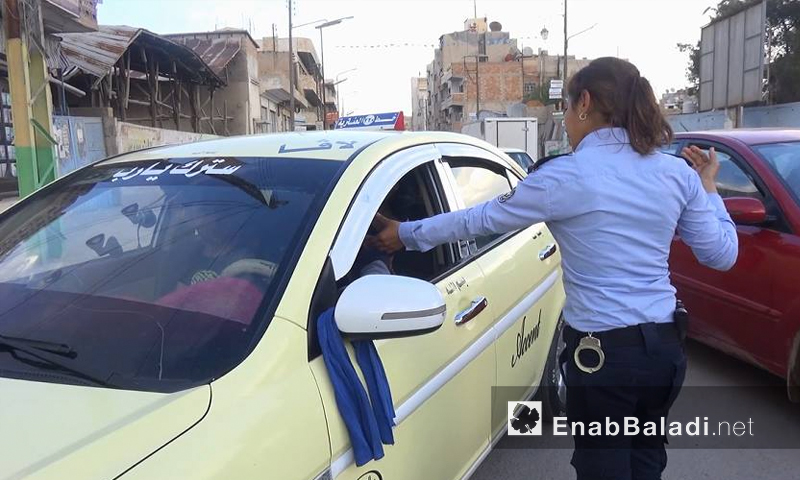






 A
A
A
A
A
A



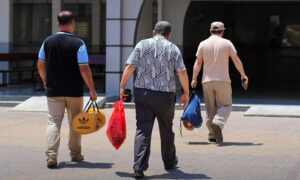
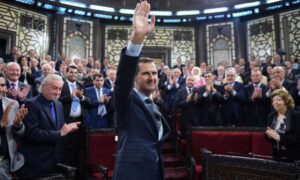

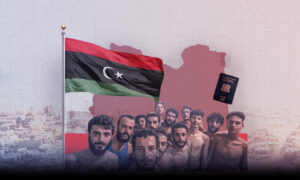
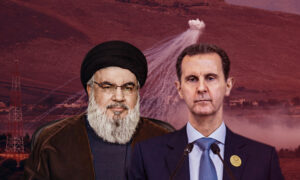
 More In-Depth
More In-Depth